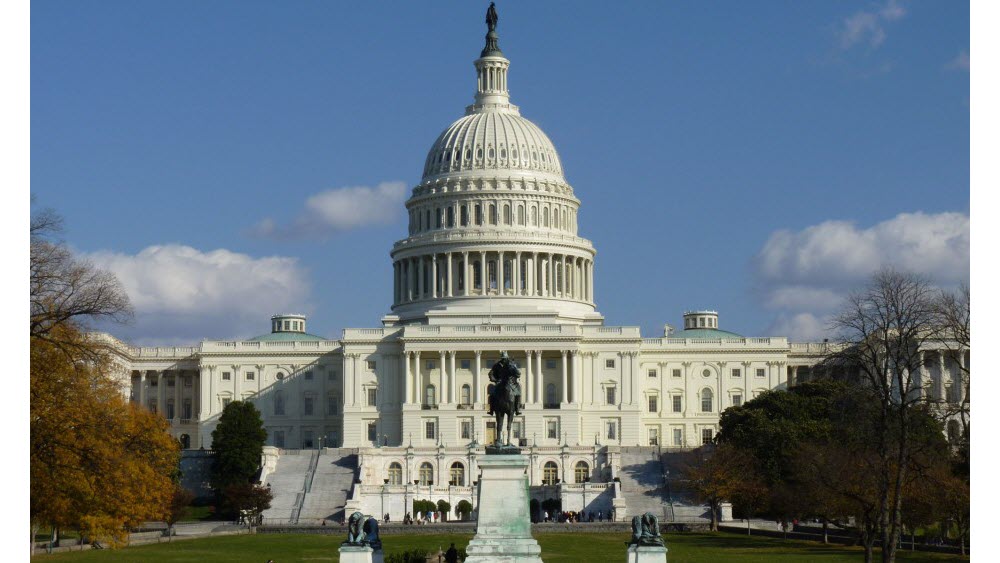Democrat-led Business Forward Backs Non-Title II Net Neutrality Resolution

The smarter way to stay on top of broadcasting and cable industry. Sign up below
You are now subscribed
Your newsletter sign-up was successful
Business Forward, a Democrat-led pro-business lobby, is calling on Congress to step in and resolve the net neutrality regulation debate once and for all, and without re-imposing either Title II or a general conduct standard.
"Title II is a non-starter with Republicans, and any insistence by Democrats on making utility-style regulation the centerpiece of a net neutrality bill effectively ensures it will not become law," it says.
Related: Net Neutrality Rollback Effective June 11
That comes as the FCC and opponents of its deregulatory Restoring Internet Freedom (RIF)order prepare to face off in oral argument Friday (Feb. 1) in the latest of what has been a year's long string of FCC decisions, court rejections, affirmations and remands with still no closure.
The RIF order reclassified internet access from a Title II to a Title I service and reversed FCC rules against blocking, throttling and paid prioritization, as well as a "general conduct standard" meant to get at conduct that did not fall in those other buckets. It effectively took the FCC out of the net neutrality regulation business and turned that power over the the Federal Trade Commission, which lacks rulemaking authority and, some argue, the subject matter expertise of the FCC.
In a new Issue brief, The High Cost of Doing Nothing on Net Neutrality, the group argues that a bipartisan quartet of FCC chairs (Michael Powell, Kevin Martin, Julius Genachowski, and Tom Wheeler) all supported net neutrality principles and all put forth rules, policies or principles (the last of those under Powell) but lacked the congressional authority--or at least clarity--to enforce them.
Thus the endless court challenges or reversals under new administrations.
The smarter way to stay on top of broadcasting and cable industry. Sign up below
But Business Forward isn't blaming either side. "Federal agencies like the FCC are not designed or intended to legislate net neutrality rights. That’s Congress’s job."
The brief aligns with most thinking on the subject on both sides of the aisle, but the trouble remains that Democrats generally want Congress to clarify that internet access is a Title II (common carrier) telecommunications service subject to mandatory access provisions, while most Republicans say it should classified as a Title I information service not subject to potential price and other regulation beyond what is spelled out in legislation settling that classification dispute in favor of Title I.
The group argues, and persuasively if past is prologue, that "Unless Congress passes a clear net neutrality law, the issue will remain caught in endless court battles and political fights at the FCC." It also says the solution need not be Title II.
The meat of their compromise argument, which might well draw Republican support, is this:
"The sticking points in any bipartisan negotiations on net neutrality seems likely to be the questions of Title II utility classification and a “general conduct standard.” But they needn’t be. Neither is necessary to implement clear, enforceable net neutrality rules. Congress can create clear prohibitions against blocking, throttling, and paid prioritization, enforceable by
the FCC, while preserving the Clinton-era light-touch framework better suited to a still-evolving marketplace. And such clear, unambiguous rules – with meaningful enforcement powers and penalties – are preferable to a vague “conduct standard” that would create massive uncertainty by giving future FCC administrations the power to effectively redefine the rules and undermine the will of Congress at some point in the future."
Republicans and Democrats have both said they can support rules against blocking and throttling, and while paid prioritization is a more gray area, some Republicans have indicated they could get on board with that, too.
For example, Sen. John Thune (R-S.D.), then the chairman of the Senate Commerce Committee and now the chair of the Communications Subcommittee, has said he supports "rules that prevent blocking, throttling and paid prioritization of internet traffic," just not under Title II.
"After 15 years of stops, starts, court challenges, and political reversals at the FCC, action is painfully overdue," says Business Forward, which appears to be trying to find a path forward as well.
For his part, new House Communications Subcommittee chairman Mike Doyle (D-Pa.), has said that the subcommittee's first hearing will be on net neutrality.
Contributing editor John Eggerton has been an editor and/or writer on media regulation, legislation and policy for over four decades, including covering the FCC, FTC, Congress, the major media trade associations, and the federal courts. In addition to Multichannel News and Broadcasting + Cable, his work has appeared in Radio World, TV Technology, TV Fax, This Week in Consumer Electronics, Variety and the Encyclopedia Britannica.

